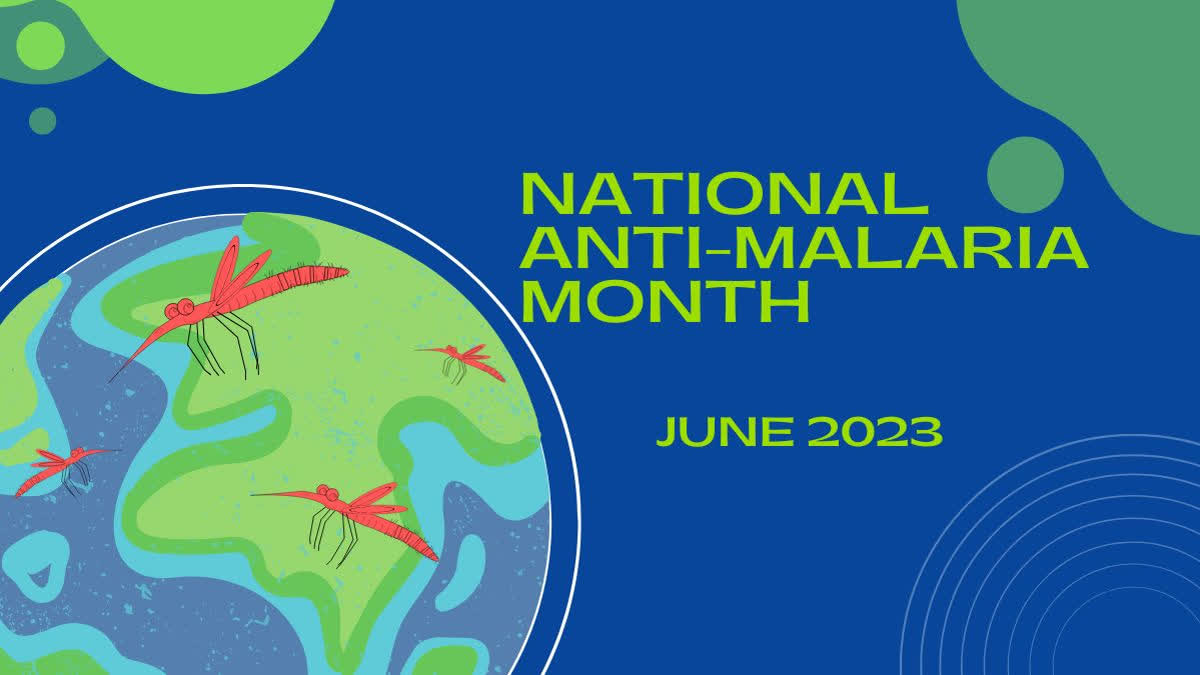Hyderabad: Malaria is a disease that still causes the deaths of many people every year. The onset of the rainy season increases the risk of malaria and other mosquito-borne diseases or vector-borne diseases. In such situations, many monthly and weekly events are organized by the government to make people aware of these diseases and different ways to prevent them and to motivate them to make efforts in this direction. One such effort of the government is “National Anti-Malaria Month”.
National Anti-Malaria Month is observed every year from June 1 to June 30 to make every possible effort to search for malaria patients and stop the spread of this disease. Under this initiative, several campaigns are conducted to spread awareness among people in all urban and rural areas for the prevention and treatment of malaria in the entire month of June. Also, on this occasion, campaigns like killing mosquitoes, preventing their larvae from flourishing and monitoring this disease are conducted by the concerned government units.
Malaria is currently considered the third most common disease in India. Although this disease is found throughout the year in India, but its outbreak increases during the monsoon. According to the World Health Organisation (WHO), 77 per cent of the total malaria cases in South East Asia are detected in India. According to the statistics for the year 2021, about 2 million cases of malaria were reported every year in India. Currently, about 1000 deaths occur every year due to this disease. Most of the malaria cases in the country come from the states of Orissa, Chhattisgarh, West Bengal, Karnataka, Jharkhand, Madhya Pradesh, Uttar Pradesh, Assam, Gujarat and Rajasthan.
The spread of malaria can be stopped effectively, but this is not happening due to a lack of personal, social and government efforts, a lack of facilities and many other reasons. Malaria is considered a major health problem in most of the rural/remote areas of India. The Government of India has undertaken a resolution to make the country free from Malaria by the year 2030 and organises various programs and campaigns for this initiative. In this campaign, various types of awareness, cleaning and monitoring programs are run in every state, city, town and village by government units and government and non-government organizations under National Anti-Malaria Month.
Also read; World No Tobacco Day 2023: Efforts towards creating Tobacco-Free World
Since 1953, several programs like National Malaria Control Program (NMCP), National Malaria Eradication Program (NMEP-1958), National Vector Borne Disease Control Programme(NVBDCP) and National Rural Health Mission have been launched by the Government of India to make efforts for controlling malaria and other vector-borne diseases. Under these programs, cleaning to prevent mosquito larvae from flourishing in rural and urban areas, chemical spraying to destroy mosquitoes and their larvae, monitoring of patients and their condition in areas more sensitive to this disease, and efforts to provide timely check-ups and treatment are carried out.
In most parts of India, the maximum prevalence of malaria is observed from July to November. In fact, in June, as monsoon arrives in most of the states, the breeding and outbreak of mosquitoes increase during the rainy season, it is very important to make timely efforts so that more and more people can be saved from malaria and other vector-borne diseases.
Malaria fever is a type of infectious disease caused by the bite of the female Anopheles mosquito. A bacterium called Protozoa of the Plasmodium genus is found in this female mosquito, which enters a person's body as soon as the mosquito bites them. This bacterium infects the liver and blood cells and makes a person sick, and if not treated on time, this disease can show very serious effects and can be fatal at times. There are five types of malaria parasites, and the outbreak of different malaria parasites is seen in different parts of the world. These parasites are:
- Plasmodium falciparum.
- Plasmodium vivax.
- Plasmodium ovale.
- Plasmodium malaria.
- Plasmodium knowlesi.
About half of the malaria cases detected in India are caused by Plasmodium falciparum (P. falciparum), a complex form of malaria. If it is not treated on time, then apart from having serious effects, it can also be fatal at times for the patient. Malaria disease causes more harm to young children and pregnant women, for example, children who have had a severe episode of malaria may have learning disabilities or permanent neurological damage. On the other hand, if malaria occurs in pregnant women, problems like anaemia, perinatal mortality and low birth weight of the child can be witnessed.


